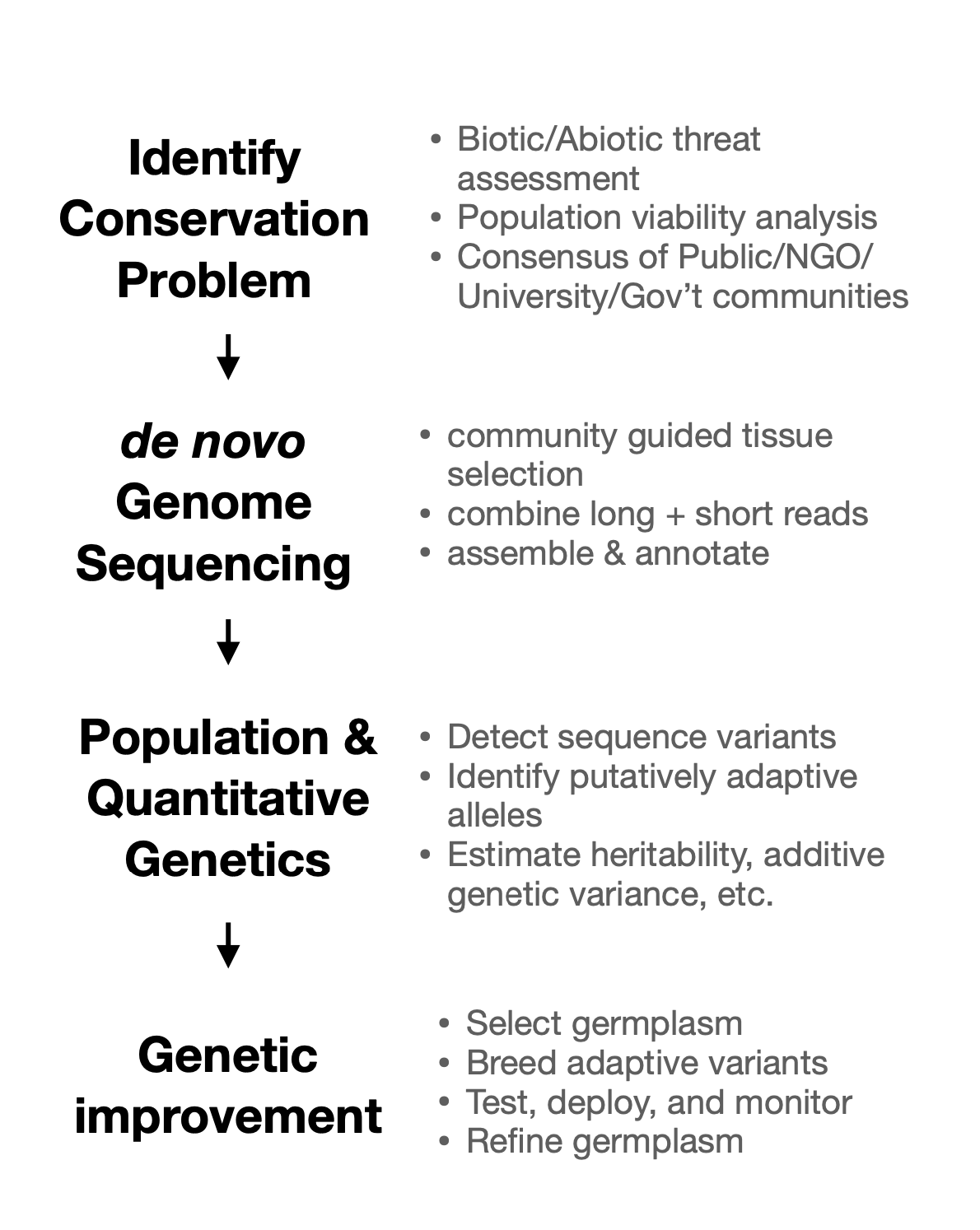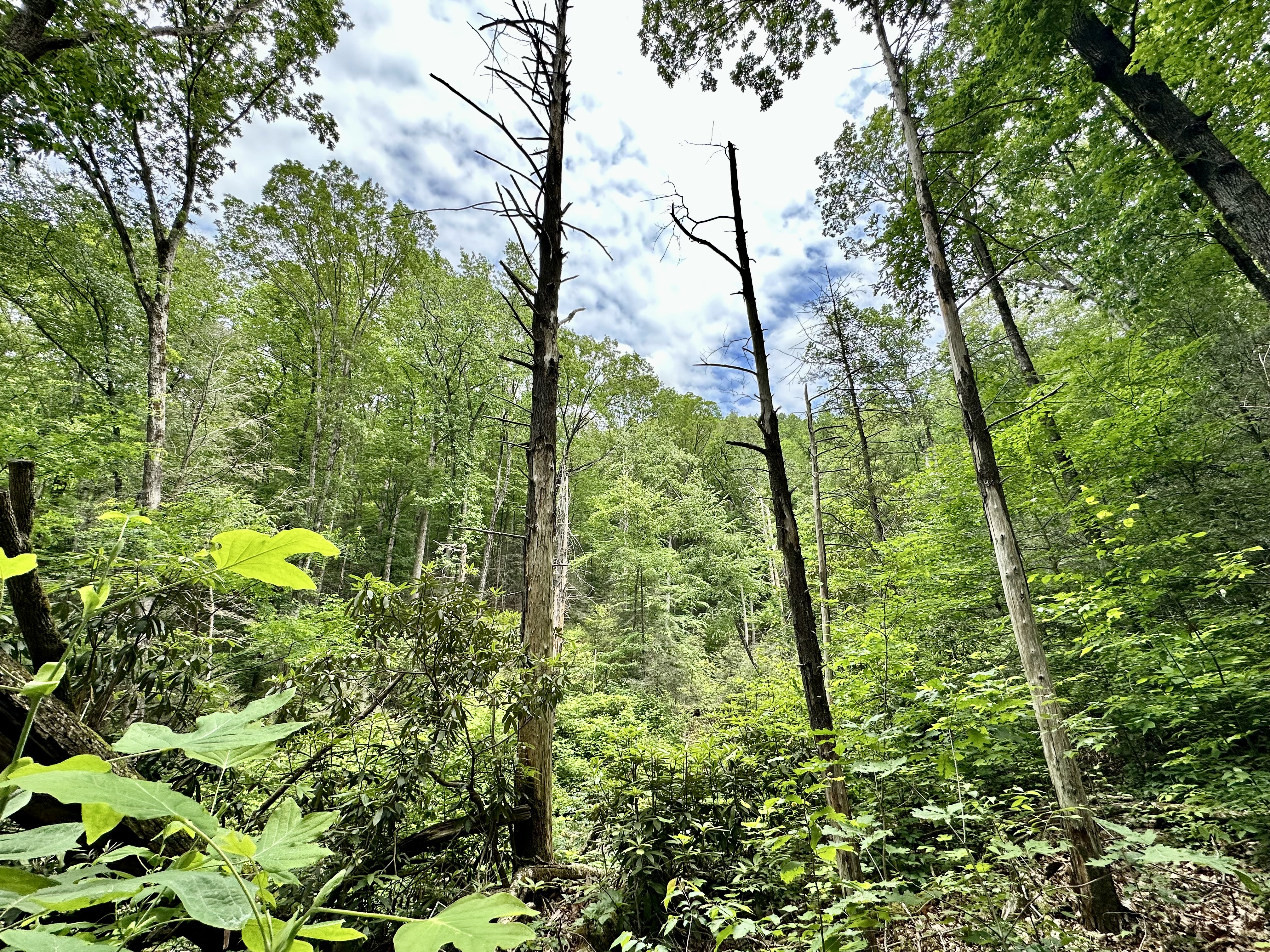Gene Conservation
Identify and conserve climate adapted genomic variation
Forested landscapes are natural resources essential to healthy ecosystems, economies, and cultures. Trees are essential to maintaining ecological functions. A feature of the anthropocene is the loss of biodiversity (Ceballos et al., 2015). Decreases in fitness in many global species is in part attributed to invasive pests and microbes causing unprecedented population declines in dozens of tree species (BGCI, 2021). Climate change effects alone will decrease fitness among some populations (Hampe & Petit, 2005). Germplasm resources in some trees are potentially threatened, and surveys of genetic diversity can aid in seed collections for breeding desirable traits adapted to challenging environments.
The Eastern Hemlock is a tree with population declines that are notable across much of its range. Complete transformation of hemlock dominated forests to Oak-Hickory or Maple-Beech forests is common in some core populations. The Hemlock Woolly Adelgid is the Eastern Hemlock’s invasive species responsible for killing some trees in as few as four years. Under such declines, germplasm that is adaptive to diverse climatic regimes is important to identify before it is lost.
Utilizing a soon-to-be reference genome, we will conduct a study of allele frequency variation in a widespread forest tree. After describing neutral demographic factors, we will use mixed models to identify genetic association to climate variables. Models are hoped to provide information on the additive component of genetic variation.


Partners in this research are many, including the USDA Forest Service, Natural Resources Canada, and Non-profit organizations. Funding from a USDA NIFA fellowship will enable this research program.m
Citations:
Ceballos, G., Ehrlich, P. R., Barnosky, A. D., Garcıa, A., Pringle, R. M. & Palmer, T. M. Accelerated modern human–induced species losses: Entering the sixth mass extinction. Science advances 1, e1400253 (2015).
BGCI. State of the World’s Trees tech. rep. (Botanical Gardens Conservation International, 2021).
Hampe, A. & Petit, R. J. Conserving biodiversity under climate change: the rear edge matters. Ecology letters 8, 461–467 (2005).